1460 c Israhel van Meckenem, Burial of Christ, metalcut, mid-15th Century, religious art
1460 c Israhel van Meckenem, Burial of Christ, metalcut, mid-15th Century, religious art
Couldn't load pickup availability
Attributed to the "Meister der Berliner Passion" from his Kleine Passion.
It is now considered almost certain that the Meister der Berliner Passion was in fact Israhel van Meckenem (der Older) (born ca 1430 in Mechelen; died ca 1466 in Bocholt)
The Burial of Christ
6.9 x 4.8 cm
ca 1460 See Lehrs pp. 63-76; Hollstein pp. 79-113. Not in the British Museum or indeed identified in any other collection.
Metalcut bordered on all sides and completed in a contemporary hand. Collector's initials WD lightly stamped to verso. Light vertical crease.
On very thin fine paper. Minor use of colour (faded). Hinge mounted.
The Master of the Berlin Passion, generally accepted to be Israhel van Meckenem the Elder, lived and worked in Bocholt, in what is now northwest Germany. A goldsmith by trade, his son--Israhel van Meckenem--also trained as a goldsmith and ultimately eclipsed his father as a printmaker as well.
Most of van Meckenem the Elder's prints are of a small format, suggesting that they were to be pasted into books as substitutes for miniature paintings. He can be consider the father of engraving and one of its first proponents.
This engraving would appear to have been part of a group of small religious engravings, struck specifically for inclusion in illustrated para-liturgical manuscripts, hence the added manuscript borders where it would have been laid down and and here added in near contemporary manuscript by an expert hand.
“Der Meister der Berliner Passion ist ein Beispiel, wie Manuskriptarbeit in Europa übergeht in Druck- und Buchproduktion durch die Kombination von handwerklicher Fertigkeit mit neuen Techniken. Das aus einem Konvent in Arnheim stammende Manuskript beispielsweise war ein Buchexperiment, in dem die Stiche des Meisters in den handschriftlichen Text eingeklebt waren.”
This engraving was copied by the first Antwerp woodcutter (Haarlem woodcutter), as a mirror image and in less detail, in Ludolf of Saxony’s Vita Christi of November 3rd, 1487.
Share
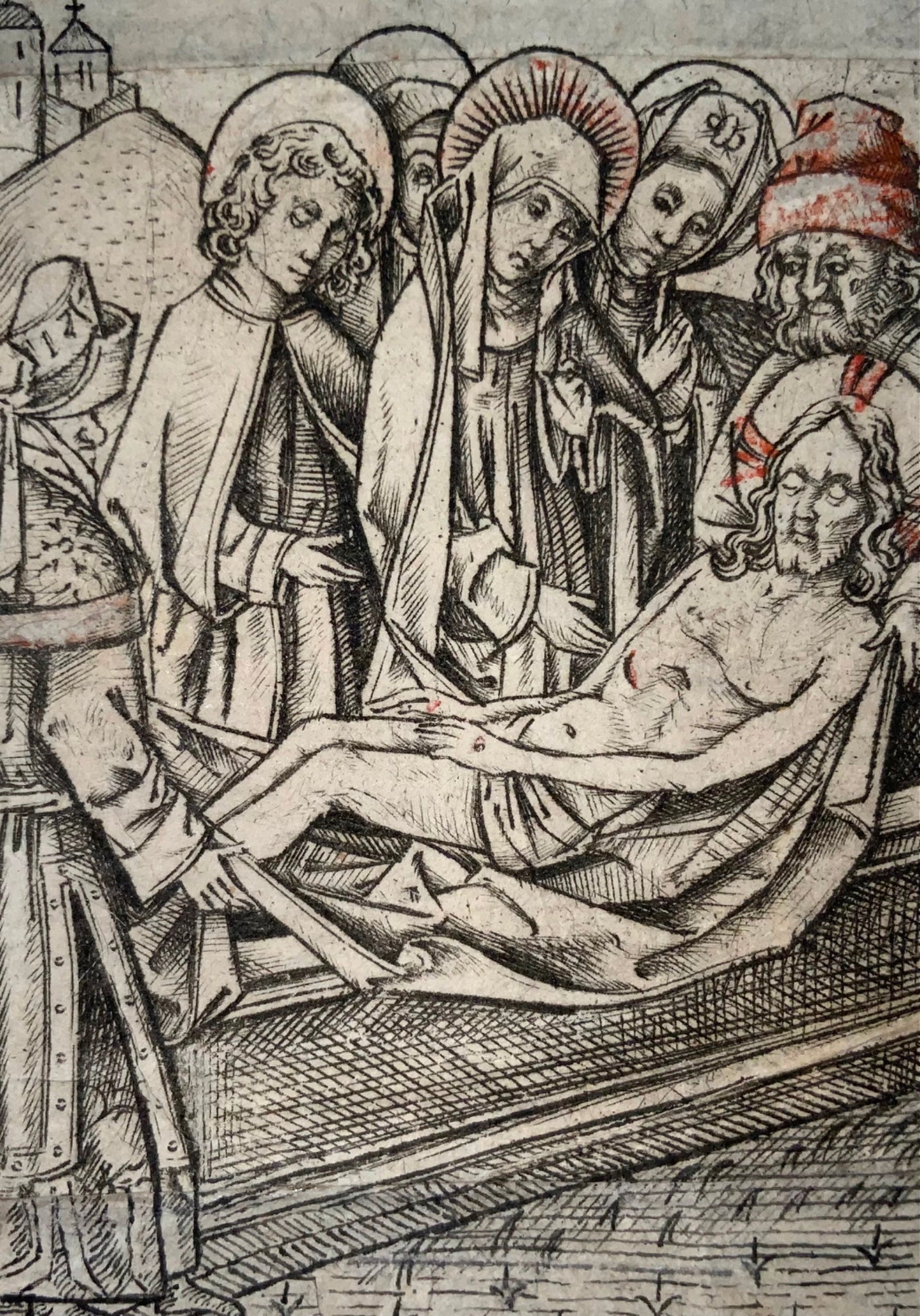
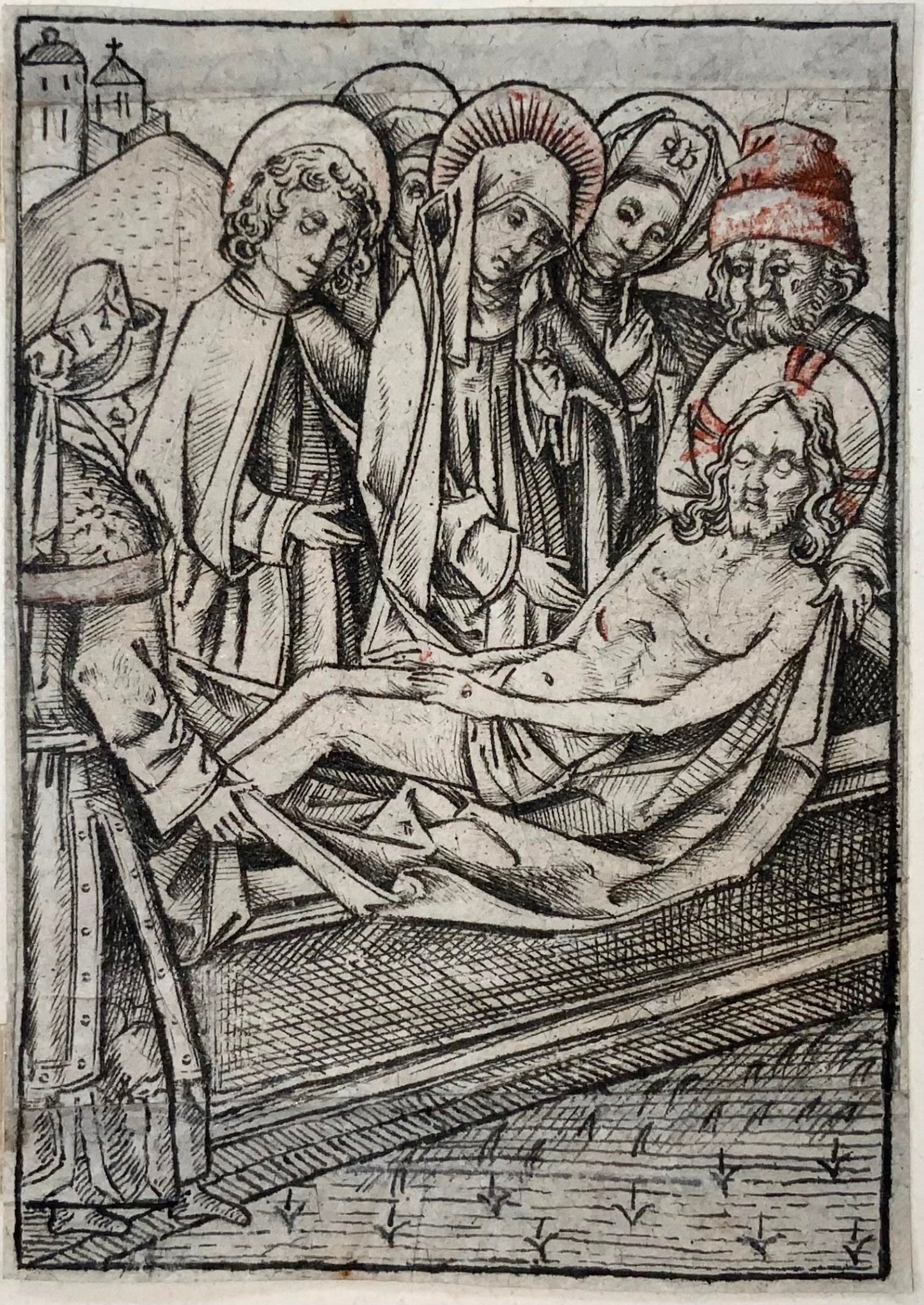
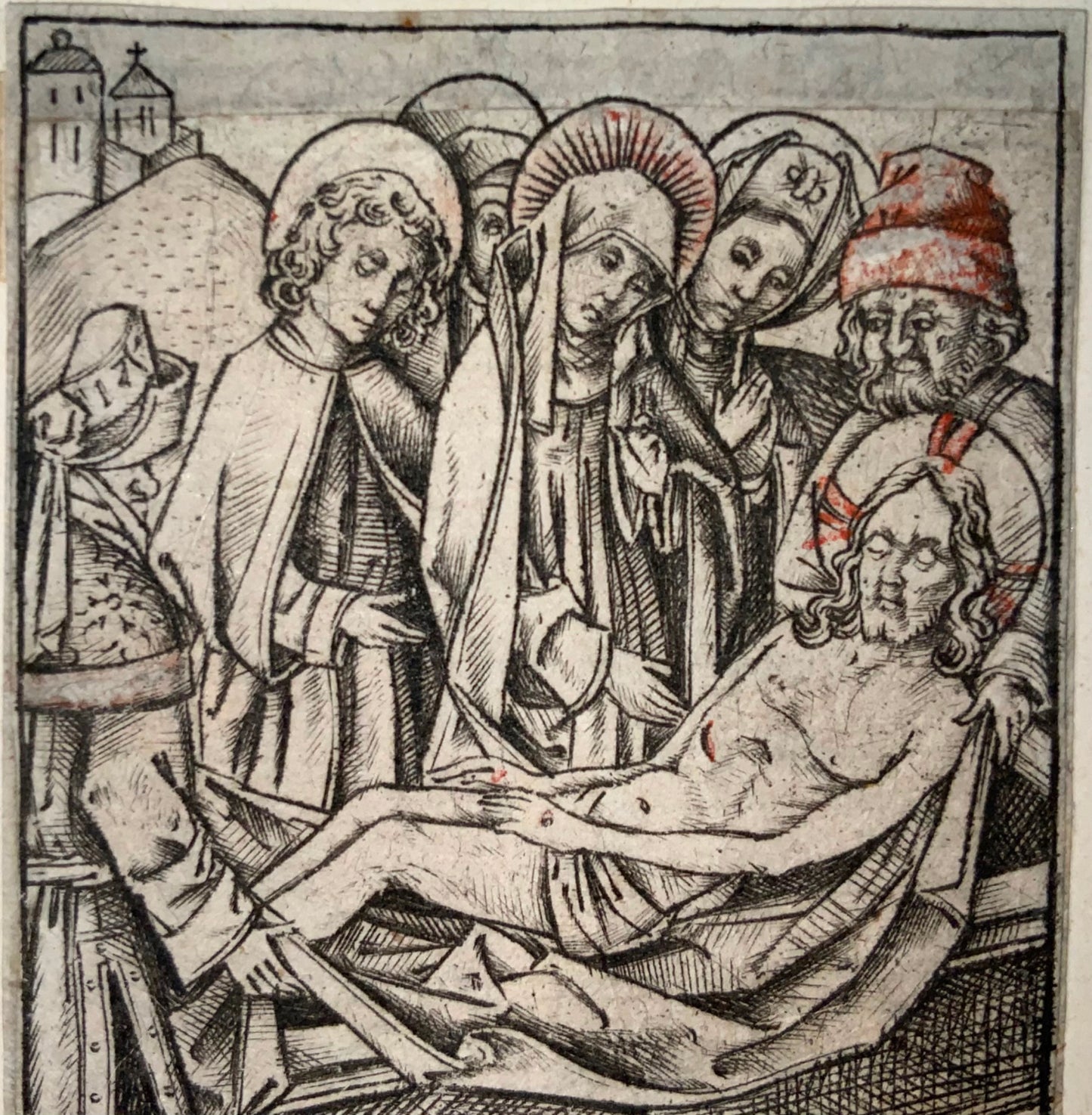
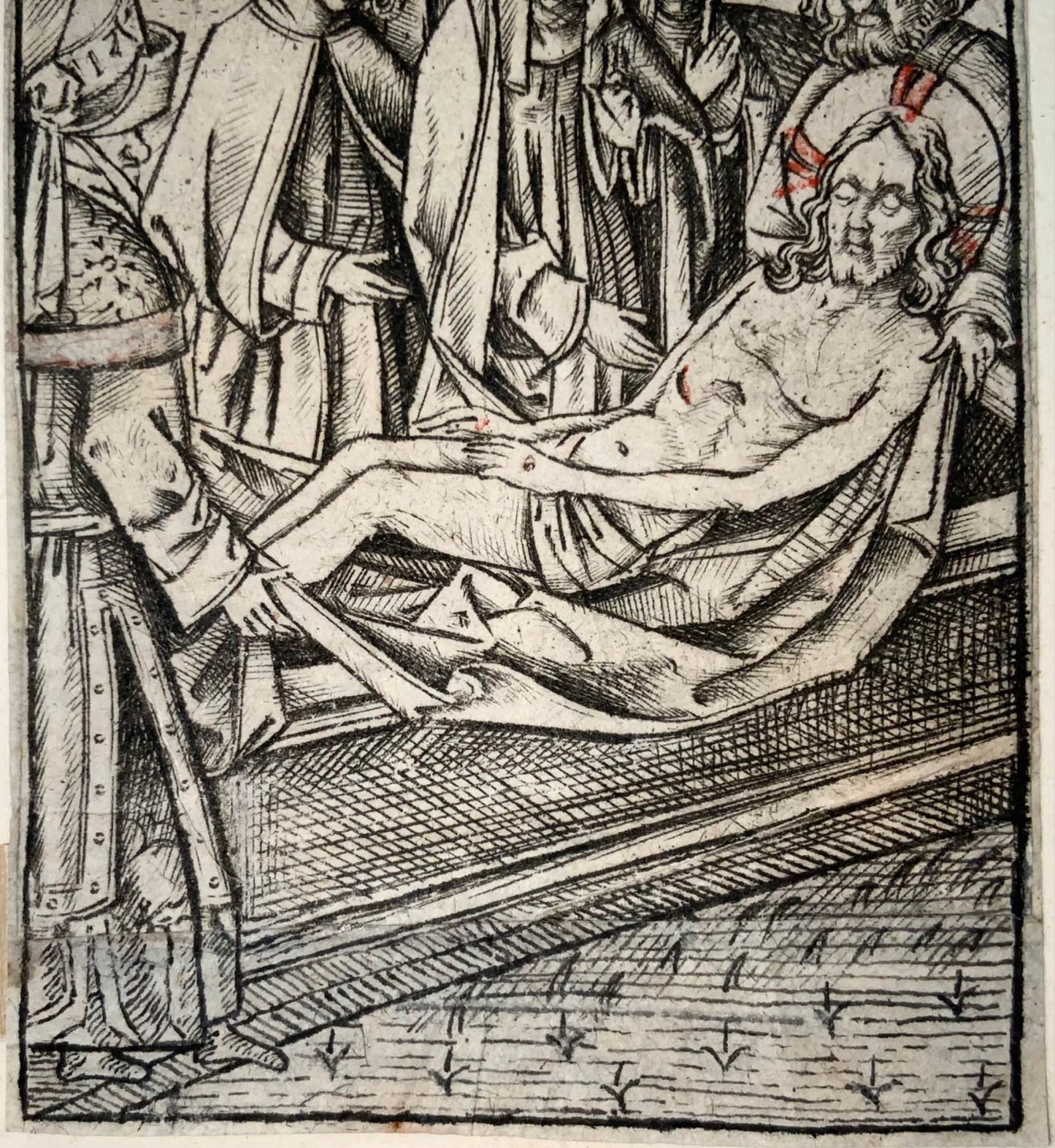
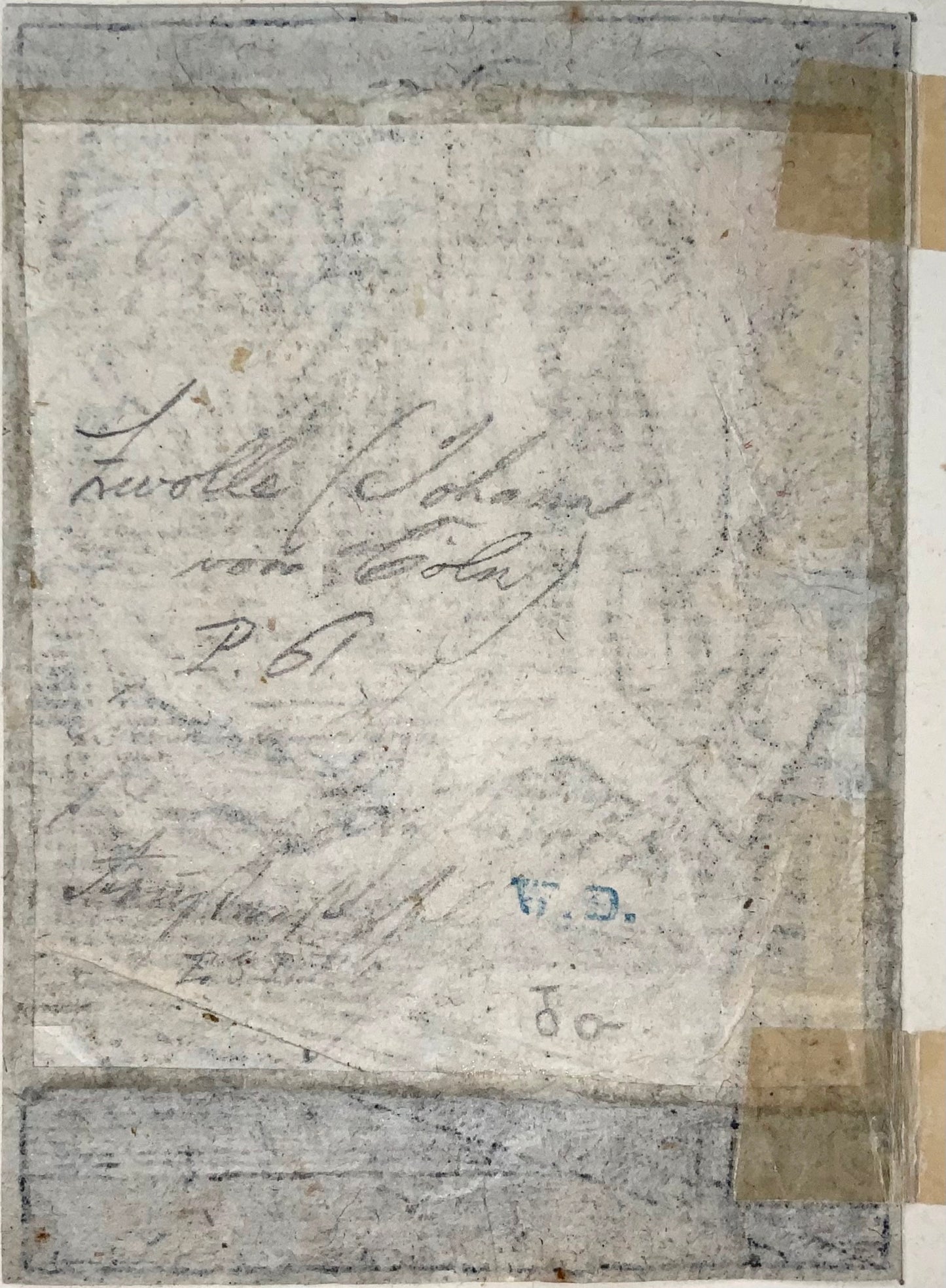
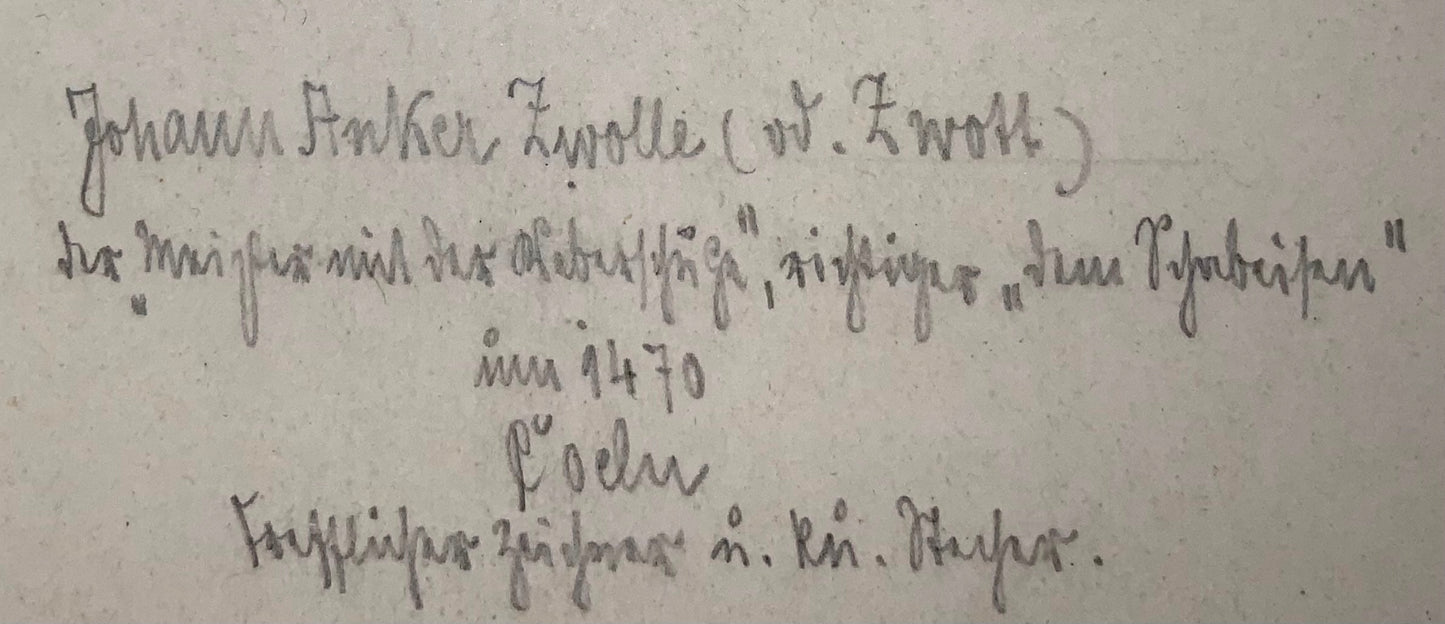
Subscribe to our emails
Subscribe to our mailing list for insider news, product launches, and more.





